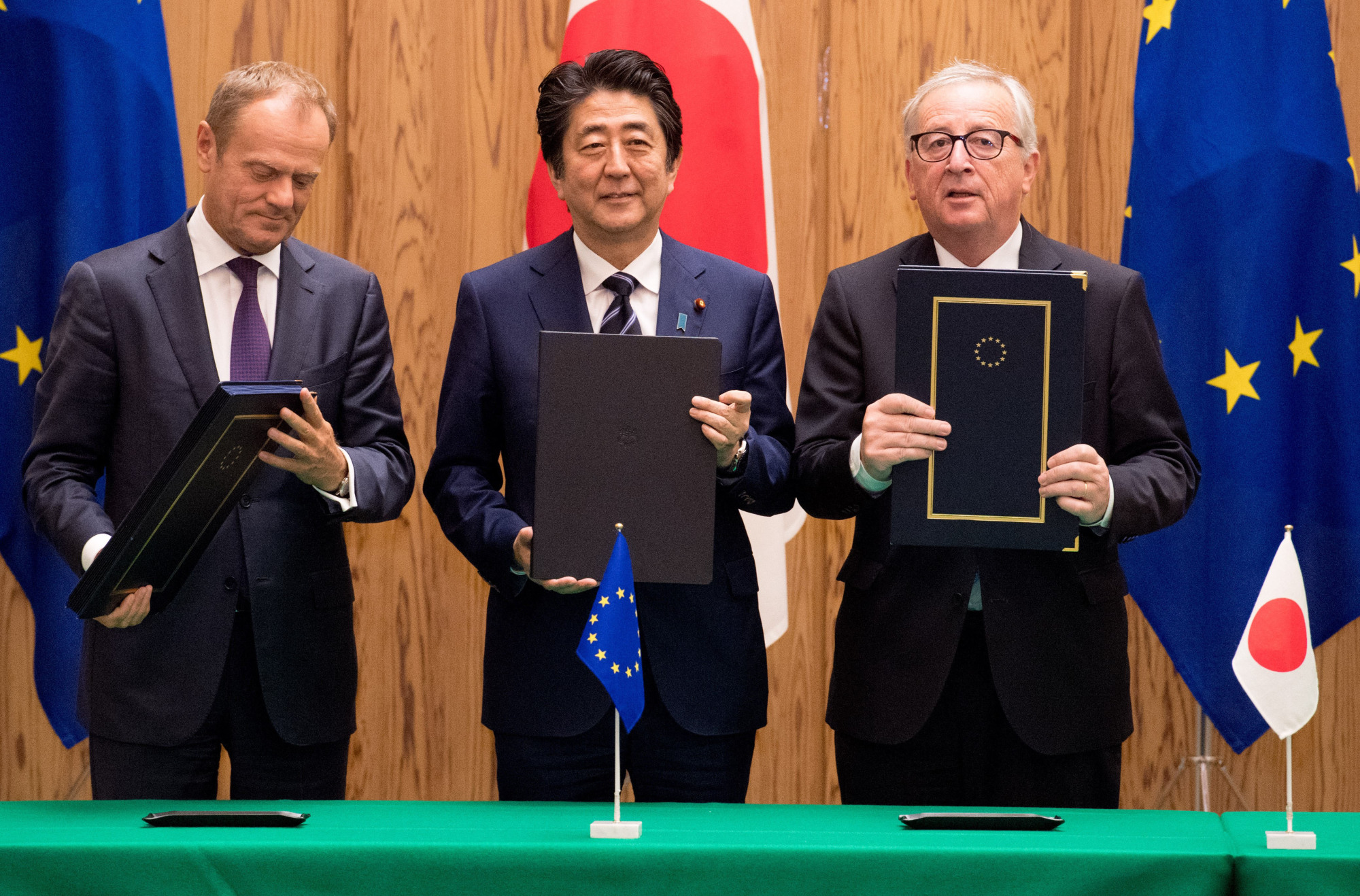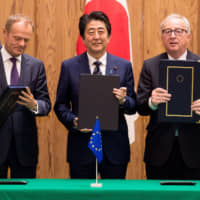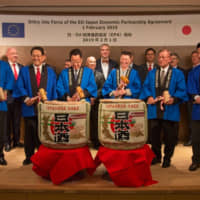The economic partnership agreement (EPA) between the European Union and Japan, which entered into force on Feb. 1, created a marketplace with 635 million people that comprises almost one-third of global gross domestic product. It is the biggest trade deal negotiated by the EU and will help bring the people of Europe and Japan closer together than ever before.
While it is still in its early days and more time is needed to accurately assess the EPA's impact on trade flows, preliminary data does indicate that the seeds have been sown for an increase in trade between these two economies. For example, EU producers looking to increase exports to Japan are seeing promising signs in the area of agricultural goods that include wine, cheese and pork. Meanwhile, Japanese exports of car parts to Europe have also increased.
The EU believes that this trade pact with Japan will be a real success story. Not only does the agreement look at market access issues by removing tariffs on goods, but it also includes a chapter on trade and sustainable development, contains specific elements to help spread the benefits to small and midsized businesses and locks in commitments under the Paris agreement on climate. It also provides for mutual protection of geographical indications, helping ensure that consumers on both sides can purchase quality products with confidence.
The EPA is a victory for producers and consumers in Europe and Japan, and it sends a clear signal to the rest of the world that these two like-minded partners are committed to preserving and promoting an open, fair and rules-based trade regime. The EU believes this is particularly crucial at a time when many in the world are looking inward and considering tariff hikes or protectionist measures.
There is criticism — not entirely unfounded — that the benefits of the postwar multilateral order have not been distributed equally. With the rise of globalization and increases in both the number and diversity of countries participating in the global economy, it has become increasingly difficult to find consensus and deal with worldwide challenges. This has often led to disgruntlement and antipathy toward the status quo.
However, the EU believes in the positive power of a global market economy and multilateral cooperation. Trade can, in fact, help correct disparities and be a tool that brings people out of poverty. Free trade among its members was one of the EU's founding principles because open trade is a fundamental economic freedom. Its removal would damage a critical part of open democracy.
Throughout the course of human history, people have been trading with each other — from stones and cowry shells to spices and cloth and cars and aircraft — and through these interactions, they developed relationships, as well as making contacts with whom ideas were shared and exchanged. These in turn helped them to better understand the wider world and to see how cooperation could bring mutual benefits.
"Make people work together, show them that beyond differences and geographical boundaries, there lies a common interest," said French political and economic adviser Jean Monnet, one of the chief engineers of European unity. While his message at the time may have been political, this thinking also applies to the EU's approach to international trade — a strategy it is happy to share with like-minded partners such as Japan.
This text was provided by the Delegation of the European Union to Japan. The EU Special was compiled in collaboration with the delegation and the European Business Council in Japan. The views expressed here do not necessarily reflect those of the newspaper.
Download the PDF of this EU Special





















With your current subscription plan you can comment on stories. However, before writing your first comment, please create a display name in the Profile section of your subscriber account page.